

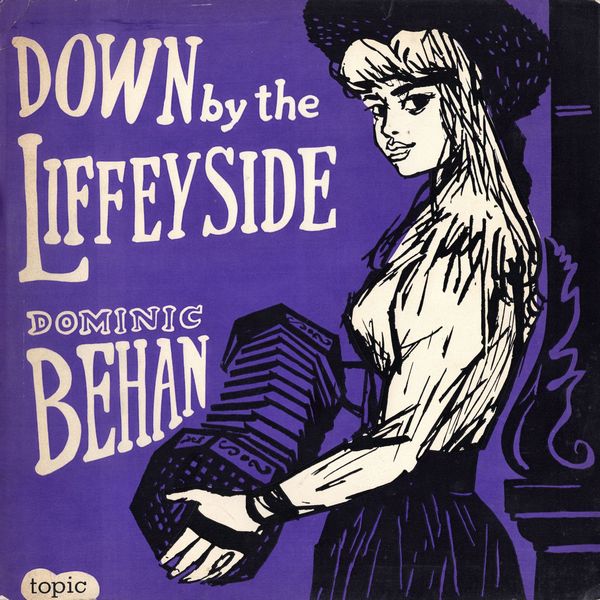 |
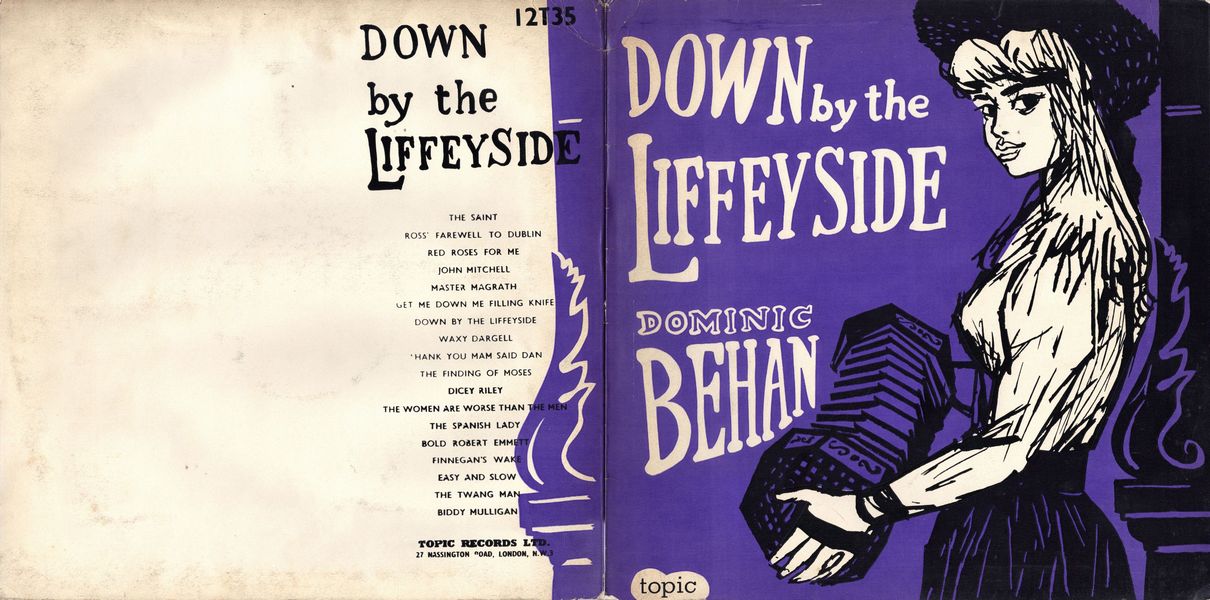
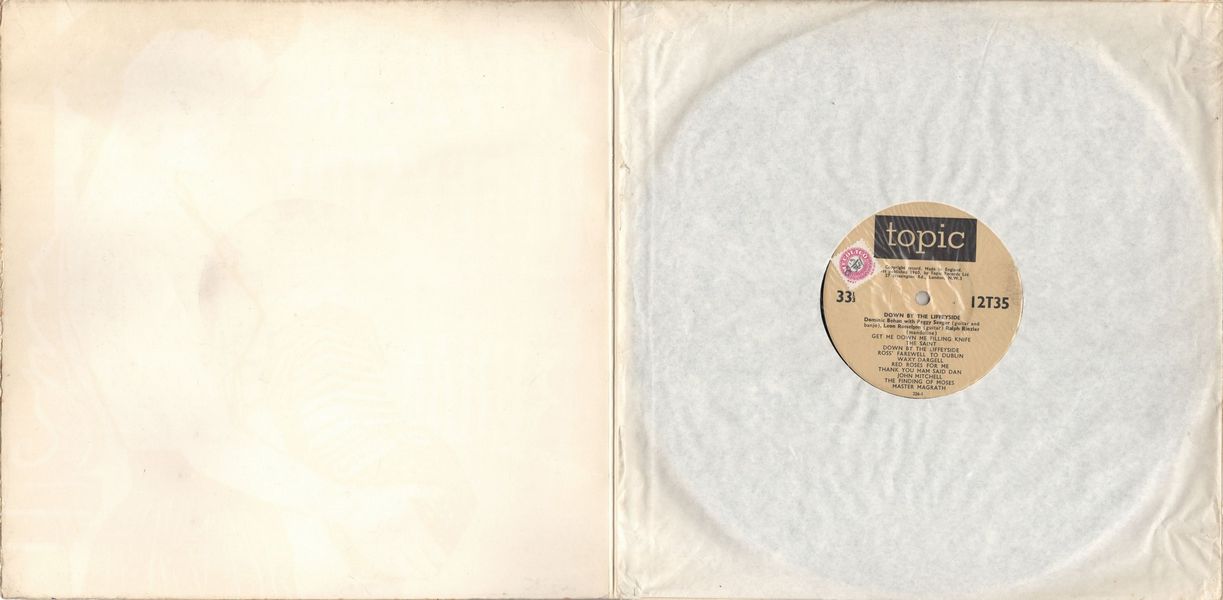
|
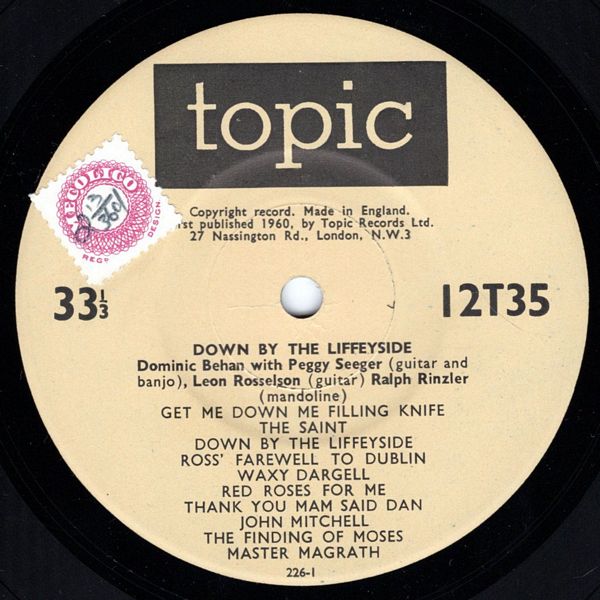
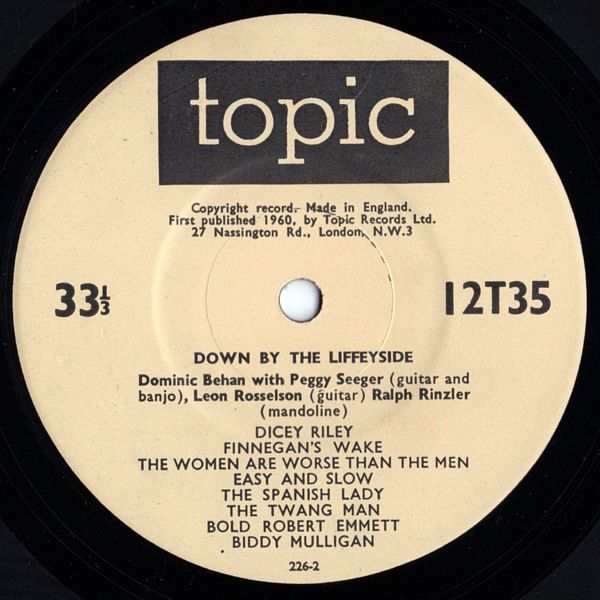
|
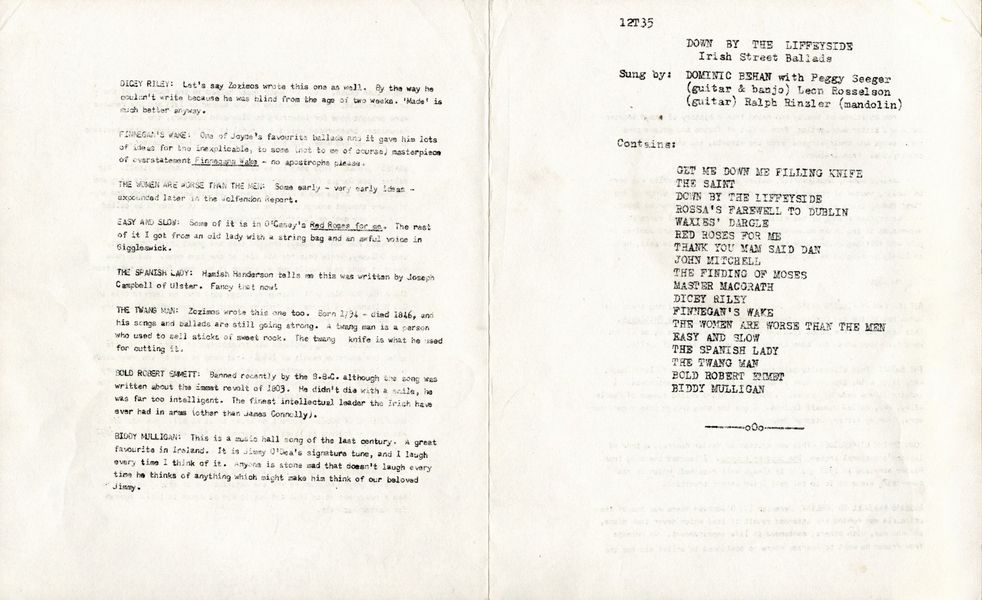
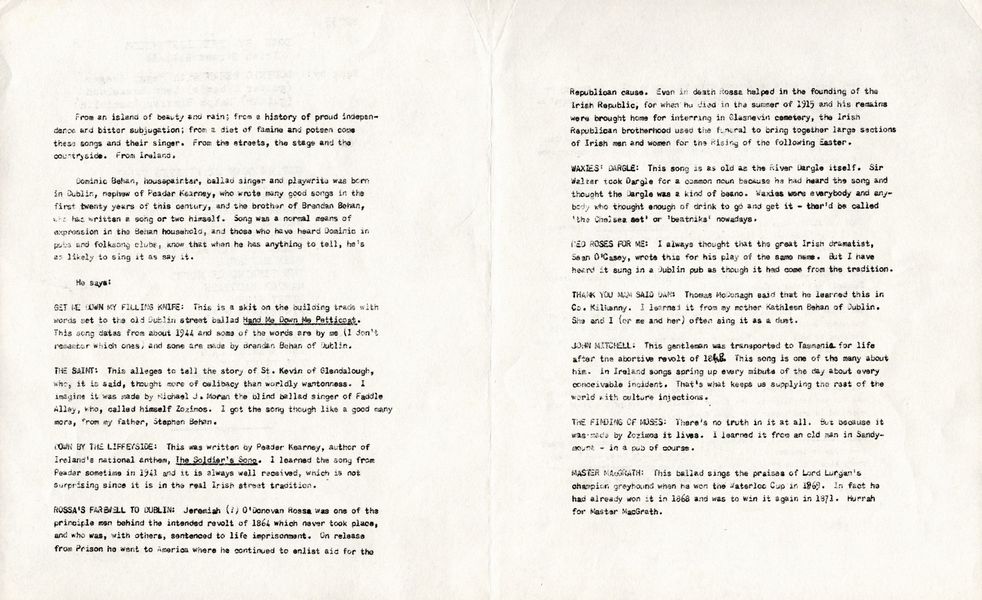
|
Sleeve Notes
From an island of beauty and rain; from a history of proud independence and bitter subjugation; from a diet of famine and poteen come these songs and their singer, from the streets, the stage and the countryside. From Ireland.
Dominic Behan, housepainter, ballad singer and playwrite was born in Dublin, nephew of Peader Kearney, who wrote many good songs in the first twenty years of this century, and the brother of Brendan Behan, who has written a song or two himself. Song was a normal means of expression in the Behan household, and those who have heard Dominic in pubs and folksong clubs, know that when he has anything to tell, he's likely to sing it as say it.
He says:
GET ME DOWN MY FILLING KNIFE — This is a skit on the building trade with words set to the old Dublin street ballad Hand Me Down Me Petticoat. This song dates from about 1944 and some of the words are by me (I don't remember which ones) and some are made by Brendan Behan of Dublin.
THE SAINT — This alleges to tell the story of St. Kevin of Glendalough, who, it is said, thought more of celibacy than worldly wantonness. I imagine it was made by Michael J. Moran the blind ballad singer of Faddle Alley, who, called himself Zozimos. I got the song though like a good many more, from my father, Stephen Behan.
DOWN BY THE LIFFEYSIDE — This was written by Peader Kearney, author of Ireland's national anthem, The Soldier's SonG. I learned the song from Peader sometime in 1941 and it is always well received, which is not surprising since it is in the real Irish street tradition.
ROSSA'S FAREWELL TO DUBLIN — Jeremiah (?) O'Donovan Rossa was one of the principle men behind the intended revolt of 1864 which never took place, and who was, with others, sentenced to life imprisonment. On release from Prison, he went to America where he continued to enlist aid for the Republican cause. Even in death Rosea helped in the founding of the Irish Republic, for when he died in the summer of 1915 and his remains were brought home for interring in Glasnevin cemetery, the Irish Republican brotherhood used the funeral to bring together large sections of Irish men and women for the Rising of the following Easter.
WAXIES' DARGLE — This song is as old as the River Dargle itself. Sir Walter took Dargle for a common noun because he had heard the song and thought the Dargle was a kind of beano. Waxies were everybody and anybody who thought enough of drink to go and get it — ther'd be called 'the Chelsea set' or 'beatniks' nowadays.
RED ROSES FOR ME — I always thought that the great Irish dramatist, Seán O'Casey, wrote this for his play of the same name. But I have heard it sung in a Dublin pub as though it had come from the tradition.
THANK YOU MAM SAID DAN — Thomas McDonagh said that he learned this in Co. Kilkenny. I learned it front my mother Kathleen Behan of Dublin. She and I (or me and her) often sing it as a duet.
JOHN MITCHELL — This gentleman was transported to Tasmania for life after the abortive revolt of 1848. This song is one of the many about him. In Ireland songs spring up every minute of the day about every conceivable incident. That's what keeps us supplying the rest of the world with culture injections.
THE FINDING OF MOSES — There's no truth in it at all. But because it was made by Zozimos it lives. I learned it from an old man in Sandymount — in a pub of course.
MASTER MACGRATH — This ballad sings the praises of Lord Lurgan's champion greyhound when he won the Waterloo Cup in 1869. In fact he had already won it in 1868 and was to win it again in 1871. Hurrah for Master MacGrath.
DICEY RILEY — Let's say Zozimos wrote this one as well. By the way he couldn't write because he was blind from the age of two weeks. 'Made' is much better anyway.
FINNEGAN'S WAKE — One of Joyce's favourite ballads and it gave him lots of ideas for the inexplicable, to some (not to me of course) masterpiece of overstatement Finnegans Wake — no apostrophe please.
THE WOMEN ARE WORSE THAN THE MEN — Some early — very early ideas — expounded later in the Wolfendon Report.
EASY AND SLOW — Some of it is in O'Casey's Red Roses for me. The rest of it I got from an old lady with a string bag and an awful voice in Giggleswick.
THE SPANISH LADY — Hamish Henderson tells me this was written by Joseph Campbell of Ulster. Fancy that now!
THE TWANG MAN — Zozimos wrote this one too. Born 1794 — died 1846, and his songs and ballads are still going strong, a twang man is a person who used to sell sticks of sweet rock. The twang knife is what he used for cutting it.
BOLD ROBERT EMNETT — Banned recently by the B.B.C. although song written about the Emmet revolt of 1803. He didn't die with a smile; he was far too intelligent. The finest intellectual leader the Irish have ever had in arms (other than James Connolly).
BIDDY MULLIGAN — This is a music hall song of the last century. a great favourite in Ireland. It is Jimmy O'Dea's signature tune, and I laugh every time I think of it. Anyone is stone mad that doesn't laugh every time he thinks of anything which might make him think of our beloved Jimmy.